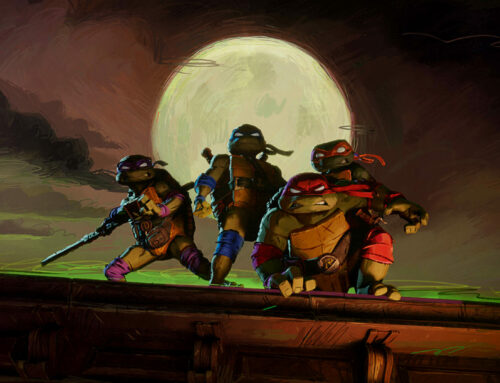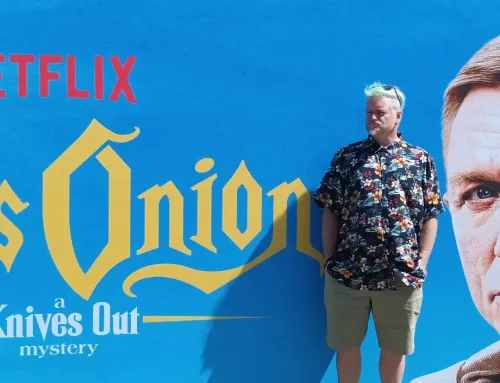i absolutely LOVED Black Panther last night, despite once again [this time cos 2D was sold out though for a pleasant change] having to watch it in crappy 3D – definitely want to see it again in 2D, so someone invite me please!
And i should add right here that THERE BE SPOILERS AHEAD so if you have not watched Black Panther yet, you may want to go and do that – SERIOUSLY, GO AND DO THAT – WHY HAVEN’T YOU WATCHED BLACK PANTHER YET? – and then come back and read this review.
i added the disclaimer after the expression of my enjoyment because i was ABSOLUTELY CONVINCED i was going to love this movie. The trailer looked impressive, the soundtrack was receiving much Twitterer love and everything just felt primed for this Ryan Coogler directed Marvel movie to go big.
New Kid On The Block
As someone who grew up with the comics [specifically eighties and nineties Spiderman and Fantastic Four] i won’t lie and suggest that i was a big fan of Black Panther [although fun fact: the black panther has always been my favourite animal – just such an impressive creature of beauty and definitely want to see one of those live and up close some day! Such a stunning beast!] and didn’t even really know much about it – beyond the political movement [which, in my pretty unpolitical upbringing i was likely introduced to in the movie Forest Gump so let’s file that under #ShelteredMuch] which i had a bit of understanding about since following #BlackLivesMatters and the more local #FeesMustFall movements to some extent. But Black Panther’s introduction, in Captain America: Civil War, certainly got my attention and from there the anticipation started to rise.
Black Panther is important for so many reasons. The largest of which is quite possibly seeing an almost completely black cast including Chadwick Boseman [T’Challa/Black Panther], Michael B. Jordan [Erik Stevens/Killmonger], Lupita Nyong’o, Angela Bassett, Danai Gurira, Forest Whitaker, Winston Duke and Letitia Wright among others, not forgetting South Africa’s own John Kani as the recently deceased former King T’Chaka [Fun Fact: younger King T’Chaka was played by John Kani’s actual son Atandwa in the movie], that delivers such an iconic movie. No question that this is one of the best superhero movies Marvel has delivered so far, i will be interested to see what kind of awards attention this movie receives with Michael B. Jordan probably in the front of the line for best supporting actor after an immensely powerful performance.
In fact, Martin Freeman and Andy Serkis are the only white actors of note [if you exclude a brief cameo by Sebastian Stan in the second of two credit moments you’ll wish you stayed for] and they are both definitely secondary characters to the story at large, Freeman even being greeted as “Coloniser” at one point, which was one of my highlights of the movie.
For me, though, Black Panther felt like such a win because of the wide range of strong female roles in the movie:
My absolute favourite was T’Challa’s younger sister Shuri, played subtly and with such energy and life by Letitia Wright, perfectly capturing the ‘kid sister’ vibe. As chief scientist set to rival Tony Stark and Bruce Banner in the wider MCU she stole the show most times she was on the screen, delivering some of the cheekiest and funnest lines in the movie. The humour in Black Panther felt a lot less forced than in some of the other Marvel movies, largely because it was based on the sister-brother relationship between the two – anyone with a younger sister will recognise that dynamic as it plays out in such a beautiful way.
Sand History and High Tech Gadgetry and Attack Rhinos, Oh my!
From the opening backstory which is illustrated stunningly using sand pictures which cover slavery and world war among other events, i was hooked. Director Ryan Coolger [known for directing two powerful and well-received movies in ‘Fruitvale Station’ and ‘Creed’, both of which starred Michael B. Jordan interestingly!] was intent on creating a movie that was both worthy of being a part of the Marvel Universe and that still felt like a Ryan Coogler film.
Peter Debruge on Variety.com gives us a glimpse of this:
Opening in the mythical kingdom of Wakanda, “Black Panther” effectively anticipates President Trump’s alleged comments about “shithole countries” whose refugees prefer the American way of life “to their huts.” Without disparaging the rest of Africa, Coogler and his crew suggest what the continent might have become had it never been stripped of its resources — and had those resources included highly advanced alien technology and ultra-efficient energy sources. Hidden from the world, Wakanda is home to the world’s most technologically advanced city, protected by a ruler with special powers (never fully defined, all-too-easily revoked) and a fearsome black panther costume.
There is a significance to the almost completely all-black cast that i don’t think white people can really get their minds around [except maybe in a bit of a distant empathic kind of way]. Add to that the messages of the movie, contained in the different political and ideological stances of the various characters and you have such a completely nuanced movie, that requires multiple viewings and probably some deep dive conversations to truly start sinking your teeth into. A New York Times article quoted Phil Contrino, director of media and research for the National Association of Theater Owners, who said:
“Hopefully someday we’ll look back at the release of ‘Black Panther’ as the turning point when diversity and positive representation in blockbusters switched from being an anomaly to being normal,” Mr. Contrino said.
Who WAS the bad guy?
Which brings us to a very interesting question: Who was the bad guy in the movie? This question felt like one that was in your face at different points from different angles and through the lens of different character throughout the movie. But i have heard a few different opinions stating that Killmonger isn’t actually the bad guy, one of the most interesting being in this article which addresses colinilaism and its ongoing trauma in the world, which i discovered on junkee.com:
While the film is partly a commentary on the contemporary state of race relations in the US, it asks two pretty specific questions: what would the world look like if colonialism was absent from the history books, and how should those subjected to it and it’s ongoing impacts respond in the twenty-first century?
When speaking of Eric Killmonger, this article looks deeply at his inner motivations which are contrasted against his actions:
He’s a Wakandan who was raised in Oakland around the time of the LA riots. He’s experienced the hardship and structural disadvantage experienced by racial minorities in America, and he wants to use Wakanda’s resources to liberate oppressed peoples around the world. It’s an extremely sympathetic position, yet the film keeps reminding us that he’s the bad guy — he ruthlessly murders his own accomplices and he dethrones T’Challa, nearly killing him in the process.
As far as the film goes, it’s quite clear that Killmonger represents a more radical vision of liberation. T’Challa is, on the other hand, a monarch who allies Wakanda with the CIA, an organisation notorious for its interference in the global politics, to prevent armed liberation struggles from occurring. It’s as conservative a position as you can take, which is why it’s jarring to see T’Challa described as a “radical” superhero.
This Wired.com article speaks to some of the motivations of other chief players in the film:
Old-guard preservationists—among them, T’Challa’s mother Ramonda (Angela Bassett) and Okoye (Danai Gurira), head of the king’s women-only security unit, Dora Milaje—believe the country must continue as it has for centuries, solely nurturing its own people. Others, like W’Kabi (Daniel Kaluuya) and Nakia (Lupita Nyong’o), confidants to T’Challa, subscribe to a more pan-Africanist worldview, believing that Wakandans have a great duty to aid the less fortunate—be they refugees, poor kids in the US, or activists caught in the tempest of protest against unjust state influence. The time comes when Wakanda can remain immune no longer, realizing that it too must yield to the cry of a changing world.
Layers upon layers and what was nice to see was the conflict in ideas even between people who are fighting on the same side. Okoye’s loyalty to the throne after Killmonger takes over, contrasting Shuri’s loyalty to her family and the true king [“I’m not going to serve my country, I’m going to save my country!”].
Even in the final moment, glimpsed during the credits in the U.N. meeting where it seems like T’Challa has ascribed to Erik’s motivation, if not his methods. The realisation that Wakanda cannot simply stay hiding from the rest of the world but has a part to play in leading it forward, hopefully to peace.
Conclusionary thoughts
Black Panther is the first movie in a long while that I have felt deserves a second viewing [and possibly more] and i would love to see a roundtable conversation between some African Americans and some South African black people.
That whatness of it [African American director, predominantly black cast, questions it posed] was amazing, but for me, it was also the little moments that for me made it a cut above. Some that i particularly enjoyed:
# Shuri referring to Martin Freeman’s character as ‘coloniser’ was one of my absolute laugh out loud highlights of the movie
# The reference to whipping your hair back and forth was a fun chirp
# The shout out to Shaka when Killmonger takes the spear and snaps it in half, in effect making it into a short-stabbing spear felt like such a great nod
# Being able to pick up a whole lot of Xhosa words and phrases as the Wakandan that was spoken at various times throughout the movie
# Andy Serkis did not do too shabbily with his attempt at a South African accent [yes, looking at you, Leo!]
And more… i am really glad that Sebastian Stan’s Bucky only made an appearance in the closing credits and that Martin Freeman’s depiction of CIA agent Everett Ross gave us some healthy glimpses into what it might mean to be an ally over a ‘white saviour’ and even the moments of overstepping and laying a casual hand on the shoulder of the king were dealt with hilariously in translation.
It was super helpful that Civil War served as a bit of an introduction to Black Panther as this movie didn’t have quite the labour that some of the origin stories have often by necessity. We dived into the action knowing some of the back story and had gaps filled in for us along the way.
So exciting to see it is breaking all sorts of records in terms of opening weekend figures and with repeat viewings likely, i will be keeping an eager eye to see where it ends up.
Onwards to Avengers Infinity War… What were your thoughts on Black Panther?









Leave a Reply